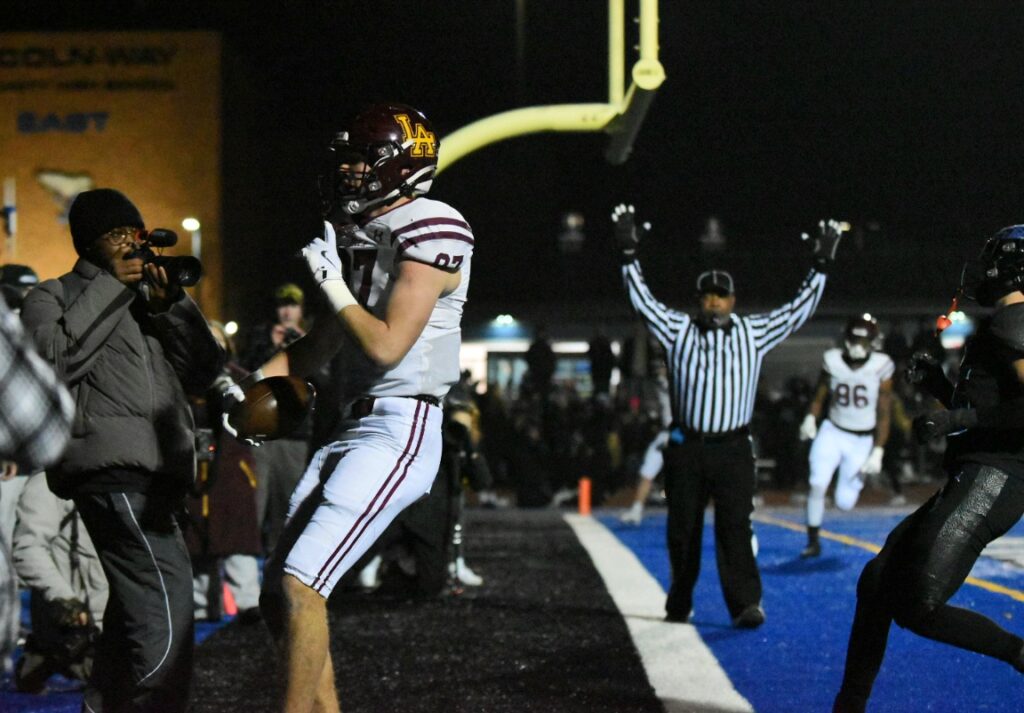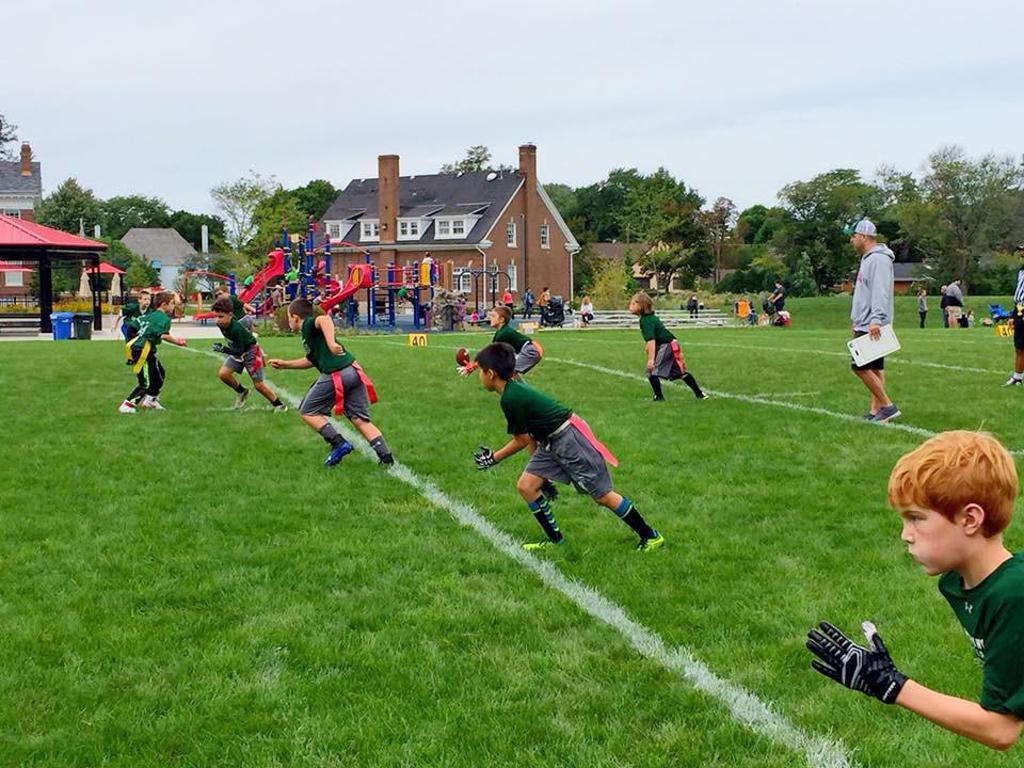
Sideline feuds, depleted funds, unexpected success: How local youth sports made it through 2020
Eduardo Monk needed balance.
His 10-year-old son, Payton, was active from an early age. The activity became part of his makeup, but the onset of COVID-19 in the spring of 2020 wouldn’t allow Payton — or any other child — to be active in the way he was used to.
Everything had changed.
Many of Payton’s activities were canceled during the spring and summer. But Payton had a chance to play football in the fall. It wouldn’t be the same — no tackling — but it was football. And Payton loves football.
Eduardo — a coach for the Junior Trevians program that pivoted to flag football — wrestled with what to do: keep his son sheltered during the pandemic versus ensure Payton’s mental health.
Could he do both?
“I had to balance the fact that the world stopped on him, his mindset, how sad he was when he couldn’t play his favorite sport,” Eduardo said. “Football is his sport since he was old enough to watch his brothers play, so I had to balance that, I had to balance the concerns with the virus and just like any good parent, we went out there, we researched, we saw, we looked.”
Eduardo faced the same dilemma as other parents, coaches and youth sports program directors since the pandemic started. Was it possible to balance physical and mental health in such uncertain times?
The search for an answer persisted through a year unlike any other in youth sports, one filled with vigilance, change and unpredictability.
Baby steps and walking on eggshells
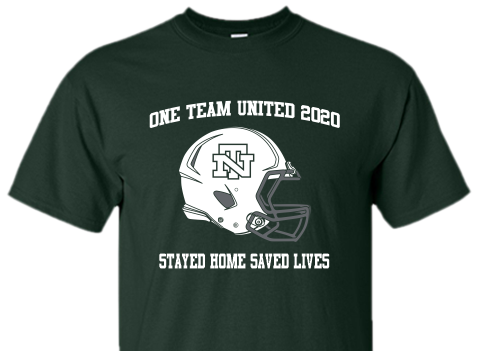
Chris Prawdzik needed cooperation.
He didn’t think the Junior Trevians Football’s 2020 season would ever start, let alone complete a campaign.
Prawdzik, the program’s president, and other board members were apprehensive about hosting any sort of season. They were nervous about the liability and unintentionally botching all of the guidelines in place by the state.
They prepared for a season no one would ever forget.
“We had no idea what it was going to look like, how many people would be interested; it was a shot in the dark,” Prawdzik said. “Fortunately for us, it went rather well.”
The program canceled its tackle league in June, making some decisions easier later on. The board focused on noncontact flag football for children from kindergarten to eighth grade.
Prawdzik wanted everyone involved on board with his decision, so the Junior Trevs worked with the Winnetka Park District; talked with parents who were pediatricians; and consulted the local high school athletic director to figure out how to do everything as safely as possible.
The program split kids into pods of 10 to 12 players based on their grade in school. They practiced twice a week and held scrimmages on Sundays. Everyone watching wore a mask, but not the athletes while they played, and sanitation stations were set up throughout the fields.
The program did its homework, but Prawdzik still wasn’t sure if the season would make it.
In fact, noticing parents were hesitant about signing up for a season that may not happen, the Junior Trevians offered a refund policy if the season was canceled within two weeks.
It was one step at a time.
First practices: check.
First games: check.
Second games: check.
“It was a weekly thing,” Prawdzik said. “We were amazed that we got a full season out of this. We thought heading into this that we wouldn’t start the season, then once we got the season started, it was ‘can we make it through this week?’ The beginning of the year was the most difficult because we weren’t sure, once we got going and we figured out what we were doing and it felt right, we felt pretty optimistic.”
The season progressed but there were issues.
According to Prawdzik, there were three COVID-19 cases during the season and five incidents of COVID-19 exposure. Whenever there were issues, the program reportedly quarantined teams with positive cases and the teams they recently played.
The program’s leaders also worked to make sure everyone followed protocols.
Prawdzik faced tense moments when he told parents to wear masks during scrimmages. Those who didn’t want to yelled at the coach.
Others questioned the league, even threatening police involvement for running a sports league during a pandemic.
“We threatened families on several different occasions, (saying) if people don’t start abiding by our guidelines, no one is going to be able to watch, we’ll just have the kids competing,” Prawdzik said. “It was a lot of baby steps and walking on eggshells at first, trying to figure out how to do it.”
Aimee Keefer is a former board member whose sons played in the program throughout the years. Her son Ben loved playing tackle football and wanted to find any way to play this fall, even if it meant playing flag football instead.
The threat of the coronavirus was always in the back of her mind but she knew the program took every precaution possible to make sure her son would be safe. Spending Sundays watching him play and getting the family out of the house not only provided Ben joy, but it brought solace to the entire family.
“Just being able to watch — and yes, these games didn’t mean anything in the scheme of moving on to the championship or any higher levels — it was just fun to cheer him on and try to make a great play and the smile on their faces,” she said. “It was really nice to get out on a Sunday afternoon in the sun and sit and cheer on Ben.”
Junior Trevians Football had nearly 700 athletes compete this past fall — during a regular season there are about 100 players for tackle and about 200 for flag football.
Prawdzik doesn’t know whether the high number reflects the growing interest seen in the past years or parents looking for ways to get their kids out of the house, but he and the board were happy with the season they put together.
The program plans on having a conventional season this fall.
“We went through what we went through in 2020 and we learned a lot,” Prawdzik said. “I feel pretty confident that we’re prepared to take on almost anything that’s thrown at us when it comes to a pandemic. … I think it’s full steam ahead to a normal fall and fingers crossed.”
Cancelations, lost funds and future concerns
Sid Tepps needed support.
It was an important season for the Wilmette Baseball Association, but the pandemic doesn’t play favorites.
The association season usually starts with a spring house league but that league was canceled as the pandemic unfolded.
The loss of a house league season forced the volunteer organization to refund all of its registered families.
While that’s not ideal, it compounded financial pain because the WBA $100,000 at the start of 2020 for maintenance at Roemer Park and equipment.
The group had to go deep into its rainy-day fund.
“That hurt, because that was 10 or 15 years worth of savings we put on the line because this is what we’re saving the money for and some of that money wasn’t recoupable,” said Sid Tepps, league director.
The program held some summer and fall programs, including its travel season, but it didn’t make up for the losses already incurred. Roughly 120 players compete in the travel league while 600 compete in the spring house league.
Tepps also worried about missing out on an entire grade of baseball players. Since baseball is a difficult game to pick up, it is important for the organization to serve players at an early age.
“The biggest loss is since we grab kids so young, there are some kids who are 8 years old who have never really played baseball,” Tepps said. “We missed a critical year because our base is based on who we sign up in first and second grade.”
How do you run a travel program during a pandemic?
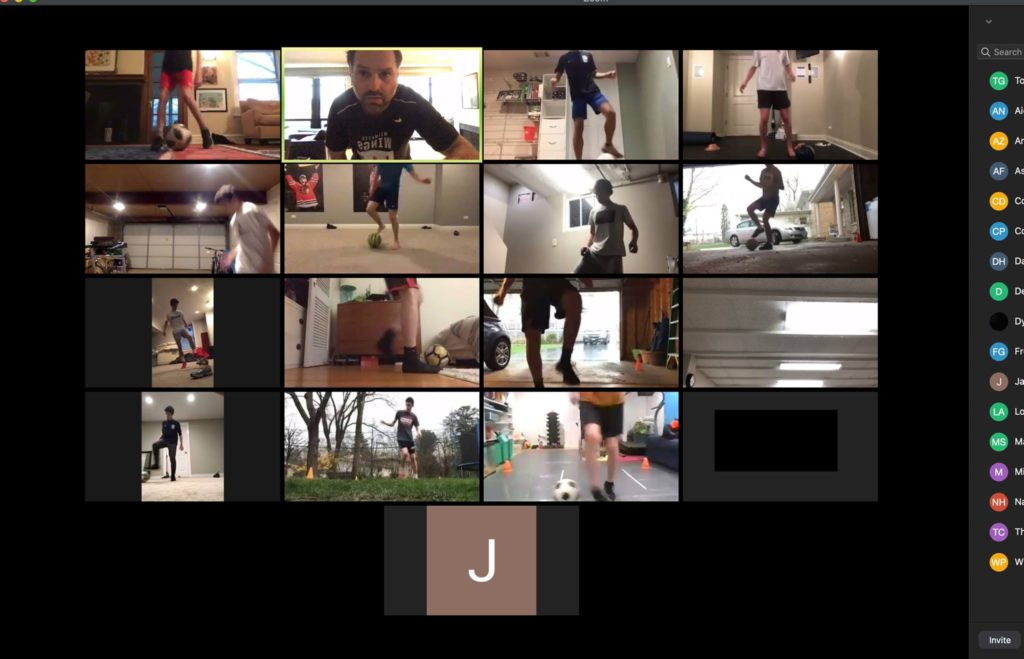
Tom Gizynski needed clarity.
How can he run a travel soccer organization built on unity when uniting goes against restrictions put in place by the state?
The director of soccer at the Wilmette Wings faced that quandary once the pandemic started and has tried to solve it in the year since.
He confronted the same issue other youth sports programs encountered by adapting his program the best he could, while also providing some sort of normalcy to athletes.
“There’s definitely been some challenges for us in the youth sports base,” Gizynski said, “but like with any challenges, I think all of the stakeholders involved, from the members to parents, the kids, to the staff, coaches, everyone’s done a good job of adapting and making sure we can provide as much of an outlet for the kids as possible.”
The Wings delayed their season and started in July, a month after the state loosened restrictions.
Gizynski developed a hybrid model since his program still couldn’t travel to compete against other teams. With roughly 400 athletes in the program, the Wings created pods of 25-50 athletes based on grade level and held small training sessions and games within the pods.
Gizynski said the program did not have a COVID-19 case reported.
“People understand that there’s a lot going into keeping everyone safe from the steps we took with the staff, from cleaning equipment and making sure the staff was masked at all times and making sure the staff was following COVID guidelines, and that was a challenge,” Gizynski said.
Tom Frye also had to adapt with Winnetka’s AYSO program.
Once the program received more information from the state, it welcomed players back by setting up groups of 20 to practice together and scrimmage against each other.
Frye said the athletes may have lost some short-term developmental skills because of the closure, but he thinks it forced coaches to look at teaching in a different way.
“Maybe we’ve lost a little bit but maybe we’re going to gain more in the long run because we’ve been forced to think about things differently in how we teach the kids and how we get the kids to embrace things,” he said.
Both groups hope to move a little bit closer to normal this year.
Gizynski thinks the recent declining numbers in COVID-19 cases and positivity rates will help the program get back to normal sooner rather than later.
“For us, it’s cautious optimism and I think that’s new because the last few months have been trending the wrong way and today we’re trending the right way,” he said. “It’s good to see that because I think sports is one avenue, but it’s good to see the light at the end of the tunnel.”
Thinking outside the box
Rob Wennington needed to adapt — fast.
The athletic director at St. Francis Xavier in Wilmette had to find a way to keep students athletically engaged after the Archdiocese of Chicago announced schools could not host athletics this school year.
Wennington and other grade-school athletic directors in the area needed to find a way to engage their student-athletes, even though they couldn’t compete .
“It’s been a trying year for sure,” Wennington said. “We have a wonderful administration at the school and we’ve been able to accomplish a lot because of the leadership in place there, but it required a lot of thinking outside of the box.”
The classes at St. Francis Xavier are divided into cohorts of 15 to 20 students who spend the day in a classroom, while the teachers come in and out.
Health and safety comes first, but also we’re losing out on opportunities for physical activity and the social, emotional connection aspect that is so important for these kids at their age.”
Rob Wennington, St. Francis Xavier School Athletic Director
Wennington and some coaches at the school met with each cohort once a week after school and conducted nonsports-movement conditioning sessions.
Wennington admitted it was difficult to hold student’s attention as the year went on. Parents looked for after-school activities but Wennington and the school couldn’t offer them.
They competed elsewhere.
“I think that was the hardest thing for me: knowing that our kids are normally going to football practice and volleyball practice, well now they’re not able to do that, yet they’re still able to go to youth soccer practice or they’re going to another outlet that is abiding by a different set of government rules,” Wennington said. “I think that was a difficult piece, because there wasn’t uniformity across the board with what’s acceptable. Health and safety comes first, but also we’re losing out on opportunities for physical activity and the social, emotional connection aspect that is so important for these kids at their age.”
Wennington hopes for a change from the archdiocese.
The Illinois Elementary School Association announced on Jan. 29 some of its sports will resume play for the remainder of the school year; though, the archdiocese has not announced any plans to allow sports this school year.
Wennington and other athletic directors are hopeful that decision will be reexamined so they can put together small tournaments, even if it’s just for their eighth-graders
“We just have to stay prepared as athletic directors,” he said, “continue our engagement that we’ve been doing for the past several months, but also know that at the drop of a hat, if we’re able to conduct a season most likely with some restrictions, we’re ready for it, to put together a volleyball tournament or a basketball tournament, or whatever the case may be.”
No doubt about it
Eduardo Monk would allow his son to play flag football 100 times over.
“I think it benefited him that we did that,” Eduardo said. “And if we didn’t do it, I think I would be dealing with a different child now.”
He watched Payton play the sport he loves, even if it wasn’t perfect.
He coached kids excited to see their friends again, smiling at every Tuesday and Thursday practice and Sunday scrimmage.
Never during the season did he think they shouldn’t be playing football, knowing that program leaders took the proper precautions to make sure each child was safe.
For him and his fellow coaches and parents, they weren’t just teaching players about the sport, but providing the leadership and camaraderie skills they will need later in life.
While the season didn’t always go as planned, he saw the impact playing sports can have on a child, when conducted in the safest way possible.
Eduardo Monk got his balance.
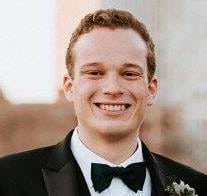
Michal Dwojak
Michal is an award-winning sports journalist based in Chicago. He most recently served as the sports editor of The Glenview Lantern and Northbrook Tower and is a graduate of the College of Media at the University of Illinois, Urbana-Champaign. He also contributes to The Varsity podcast.

